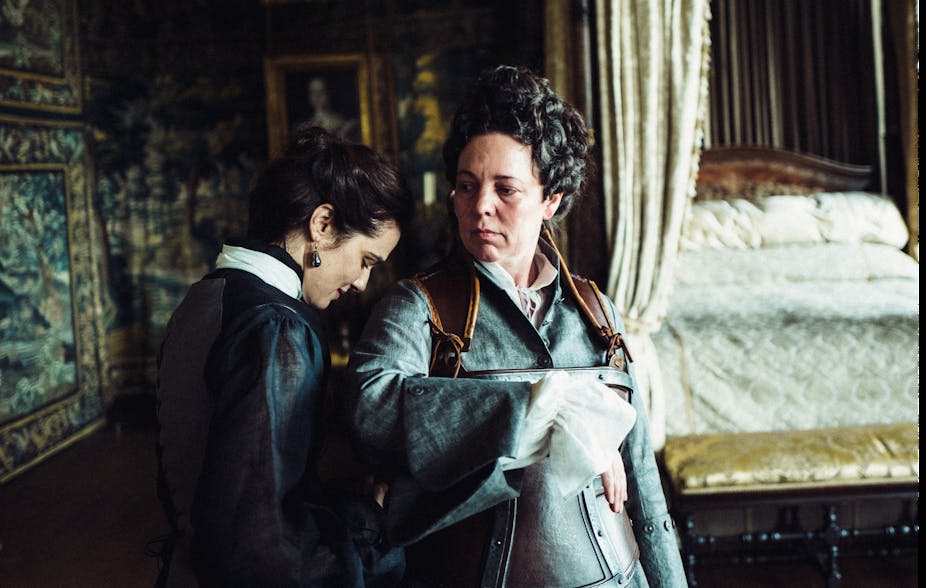Who hasn’t heard about actress Olivia Colman in recent weeks? Not only did she win a Golden Globe for her role in The Favourite, she took home the much-coveted best-actress Oscar.
During her numerous interviews, one of the many anecdotes that Colman tells concerns Wikipedia. In the “free encyclopedia that anyone can edit”, Colman apparently discovered that her birthdate was incorrect – the article unkindly made her eight years older than she actually was. When telling the story she reports that she sent “them” an e-mail to request a correction, that their response said she had to provide a birth certificate to prove it. While this initially provoked her outrage, it also gave the British actress a juicy anecdote that ridicules Wikipedia – just the kind of anecdote loved by media such as Sky News, The Daily Mirror, The Evening Standard, The Daily Mail, Harper’s Bazaar and even The Independent.
Full archives
Yet it’s easy to trace the dynamics of any Wikipedia article from the day it was created until the present: all successive versions of every article are archived and accessible via the “view history” tab at the top right. In the case of the “Olivia Colman” article in English, among thousands of successive versions, one can verify that the first time that the (correct) birthdate of the British actress was inserted was in 2006 and that it remained unchanged until 2019.
How Olivia Colman saw in Wikipedia an error ageing her by eight years remains a mystery. Once she started to tell her story in interviews, however, things changed fast – by January 28, her birthdate had been modified dozens of times in a few hours, rewarding her with a flurry of extravagant ages. To stop the avalanche of vandalism that this kind of buzzing inevitably provokes, Wikipedia administrators then made the page semi-protected.
Interestingly, The Independent shows two screenshots of the Wikipedia article with the right and then wrong birthdate. They mention that the incorrect birthdate is in fact from a screenshot taken after the announcement, but not that the whole story was proven entirely wrong: In the “view history” section of Colman’s article, not one has the incorrect birthdate before the story came out. Yet it would have been very easy for The Independent‘s writers to verify this.
Wikipedians actually did the work of fact-checking within the sources and the archives, and the report of their findings is itself archived and accessible in the article’s “discussion” page. It was even mentioned as a brief in The Signpost, the Wikipedian magazine. (This sparked the idea for this article, for which the author is indebted to them.)
The ideal villain
What is then the explanation for this fuss? It is not impossible that Olivia Colman confused Wikipedia and another site. For example, in 2011 the actress Joan Collins tweeted that Wikipedia had mistakenly stated that she had an affair with a certain Arthur Lowe. After checking the facts, Wikipedians found that Collins was in fact referring to an obscure site that had nothing to do with Wikipedia (and information she denied is still there eight years later, by the way). Is there a biographic fact mentioned on the web that’s incorrect? Then surely it’s Wikipedia!
It happens that in the media world (and also in academia), Wikipedia is the “usual suspect”. One has to be wary of the Internet, especially in times of fake news, and it’s certainly true that in Wikipedia, anyone can write anything. As such, it is regularly accused of not being reliable, compared to the legitimate sources of information that are professional journalism and academy.
Wikipedia has been one of the most visited sites for 18 years, since its inception. Yet the inner workings of the online encyclopedia are so little known to the general public that such baseless assertions are considered credible. It is all the more surprising because Wikipedia carries archiving and transparency principles within its rules and practices. Those principles, which can be traced back to the free software movement that inspired Wikipedia, are underpinned by the traceability that is one of its foundations.
Some advice for Olivia Colman: rather than “sending an e-mail to Wikipedia”, she can edit Wikipedia herself, like everyone else. And if someone tells her “she has to show a birth certificate”, then she should be interested in what Wikipedia actually requires: not primary sources like birth certificates, but secondary ones – publicly available sources in which her birthdate is mentioned.
A challenge for actresses
This anecdote reveals something else about Wikipedia’s image in the media. The encyclopedia has (literally) bad press among well-known people, whether they are actors, journalists, academics or politicians. It is safe to say that this is connected to the fact that the idea they have about the reliability of Wikipedia is largely influenced by what they see in the article that is of concern to them: their own page. It is often unpleasant to not master a page that speaks about oneself. In the case of movie actresses, the stakes are high. The Wikimedia Foundation often receives requests for information removal, or even unfounded threats of legal action. The major part of them come from representatives of actresses seeking to remove from the encyclopedia the (true) birthdate of their clients. Olivia Colman took advantage of this anecdote to bravely assert her age to the general public, and this makes her an exception in Hollywood.
One could interpret this remark as misogynous and mocking the coquetry of women: It is quite the opposite. These women are indeed working in a ruthless industry. This industry is very well known for its ageism, and this affects actresses far more than actors. What is revealed here is rather the extraordinary pressure of this industry on its female employees. In this sense, the anecdote Olivia Colman tells that, if it does not do justice to Wikipedia, it has the virtue of pointing the issue of discrimination against women in the Western entertainment industry. Happy birthday, Olivia!


